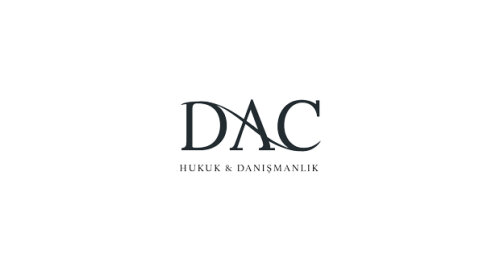Best Communications & Media Law Lawyers in Atasehir
Share your needs with us, get contacted by law firms.
Free. Takes 2 min.
List of the best lawyers in Atasehir, Turkey
About Communications & Media Law in Atasehir, Turkey
Communications & Media Law in Atasehir, Turkey, encompasses a range of legal issues involving the regulation of telecommunications, broadcasting rights, internet usage, and data protection. The field is shaped by Turkish national laws, as well as by international treaties and agreements Turkey is a part of. The focus is on balancing freedom of expression with privacy rights and ensuring fair competition among media and communication platforms. It includes laws on media content regulation, freedom of speech, intellectual property rights, and the protection of personal data.
Why You May Need a Lawyer
Individuals or businesses may require legal help in Communications & Media Law for various reasons such as dealing with defamation claims, understanding regulatory compliance for media broadcasting, responding to digital content takedown requests, resolving intellectual property disputes, and ensuring data privacy adherence. Lawyers specializing in this field are crucial for navigating the complex landscape of regulatory requirements, protecting client rights, and preventing potential legal pitfalls in media and communications.
Local Laws Overview
In Atasehir, as part of Turkey, key legal frameworks affecting Communications & Media Law include the Law on Intellectual and Artistic Works, the Law on Regulation of Publications on the Internet and Suppression of Crimes Committed by Means of Such Publication, and the Personal Data Protection Law. These regulations guide the rights and responsibilities of media organizations and internet users, ensuring proper licensing, content standards, and data privacy. Compliance with these laws is mandatory for operating legally and successfully within the communications and media sector.
Frequently Asked Questions
What is Media Law?
Media law encompasses regulations governing television, radio, print, and online media. It includes laws related to broadcasting rights, defamatory content, and censorship.
Do I need permission to use someone else's content in my publication?
Yes, using content created by others generally requires obtaining a license or permission from the content owner to avoid infringing on intellectual property rights.
How can I protect my privacy online under Turkish law?
The main regulation for online privacy is the Personal Data Protection Law which requires consent for data processing and allows individuals to control how their personal information is used.
Can I be penalized for what I post on social media?
Yes, posting defamatory, offensive, or false content can lead to legal actions including fines and imprisonment under various Turkish laws.
What should companies do to ensure compliant digital marketing practices?
Companies should adhere to regulations about collecting personal data, ensuring transparency in data use, and obtaining the requisite consent from users.
How are disputes over broadcasting rights resolved?
Broadcasting disputes are often resolved through negotiations, mediation, or litigation guided by specific broadcasting laws and contractual agreements.
What is considered a violation of broadcasting content standards?
Violations can include airing content that incites violence, hate speech, or indecency, as well as false information that may harm public safety.
Are there any special restrictions on foreign media operating in Turkey?
Yes, foreign media may face restrictions related to ownership, content distribution limitations, and compliance with Turkish broadcasting laws.
What legal recourse is available if I am defamed in media or online?
Individuals can file a lawsuit for defamation, seeking a retraction, damages, or both, under statutory laws addressing defamation and personal rights.
How do I seek legal redress against cyberbullying or online harassment?
Victims can report incidents to law enforcement and may pursue litigation under laws addressing cybercrimes and protection of personal rights.
Additional Resources
Individuals and organizations can benefit from resources such as the Radio and Television Supreme Council (RTÜK), Information and Communication Technologies Authority (ICTA), and personal legal advisors specializing in media to navigate and comply with the regulatory landscape effectively.
Next Steps
If you need legal assistance in Communications & Media Law in Atasehir, Turkey, consider consulting with a local attorney specializing in this field. Start by researching and contacting law firms that have a track record in media law issues. Scheduling an initial consultation will help you understand your situation better and formulate a legal strategy. Ensure the lawyer you choose has experience with local laws and a thorough understanding of the Turkish legal system for tailored and effective legal support.
Lawzana helps you find the best lawyers and law firms in Atasehir through a curated and pre-screened list of qualified legal professionals. Our platform offers rankings and detailed profiles of attorneys and law firms, allowing you to compare based on practice areas, including Communications & Media Law, experience, and client feedback.
Each profile includes a description of the firm's areas of practice, client reviews, team members and partners, year of establishment, spoken languages, office locations, contact information, social media presence, and any published articles or resources. Most firms on our platform speak English and are experienced in both local and international legal matters.
Get a quote from top-rated law firms in Atasehir, Turkey — quickly, securely, and without unnecessary hassle.
Disclaimer:
The information provided on this page is for general informational purposes only and does not constitute legal advice. While we strive to ensure the accuracy and relevance of the content, legal information may change over time, and interpretations of the law can vary. You should always consult with a qualified legal professional for advice specific to your situation.
We disclaim all liability for actions taken or not taken based on the content of this page. If you believe any information is incorrect or outdated, please contact us, and we will review and update it where appropriate.










